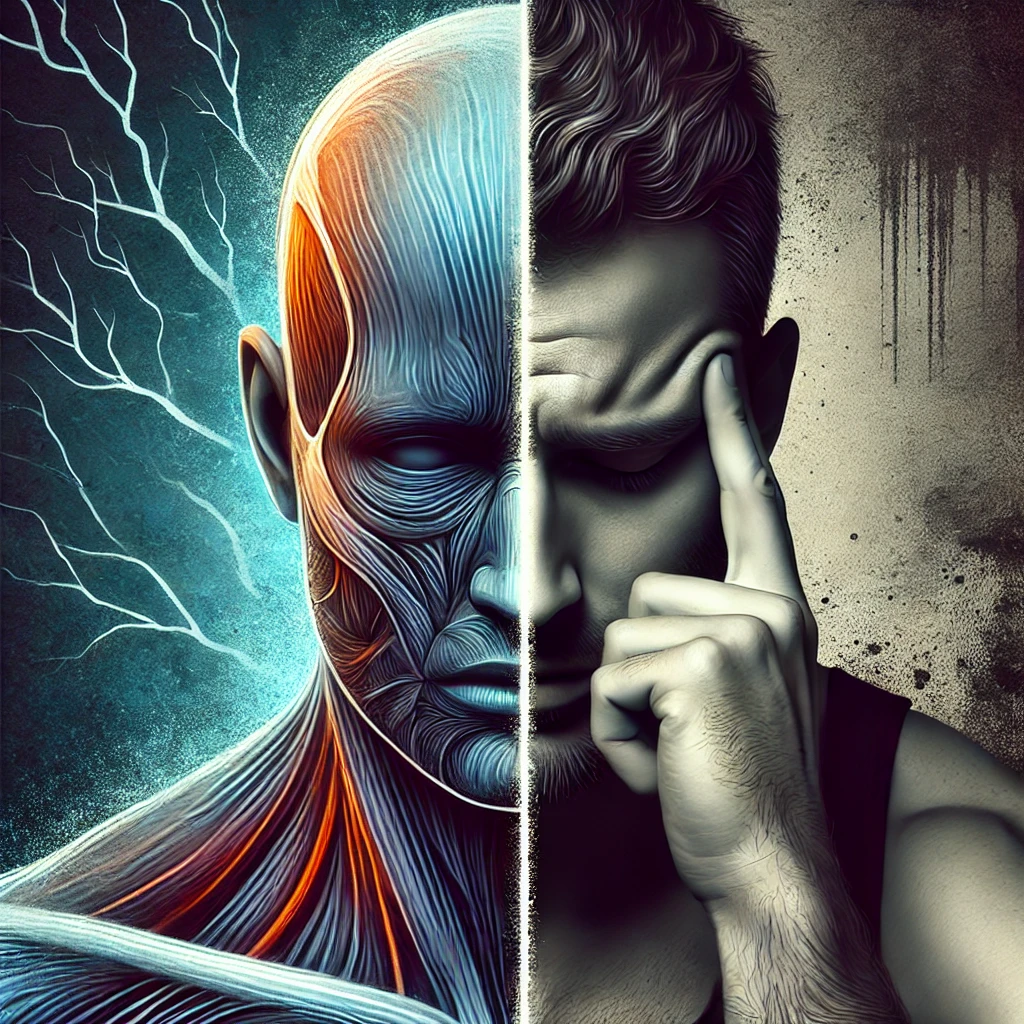Website designed with the B12 website builder. Create your own website today.
Start for free
Could depression be making you sick? It’s not just in your head—untreated depression can take a serious toll on your body. Learn how mental health and physical health are connected and why seeking help can protect both.
When we think about depression, we often focus on the emotional symptoms—feeling sad, unmotivated, or exhausted. But what many people don’t realize is that depression doesn’t just affect your mind—it affects your body too. Research has shown that depression can speed up the development of physical health conditions like high blood pressure, chronic pain, and even autoimmune diseases.
A recent study published in PLOS Medicine found that people with a history of depression develop physical health issues faster than those without the disorder. On average, individuals with depression accumulate new health conditions every five years—compared to every 6.25 years for those without it. That may not sound like much, but over time, it adds up, increasing the risk of serious illnesses. (health.com)
If you or someone you love is struggling with depression, understanding this link is crucial—not just for mental well-being, but for long-term physical health too.
Depression and the Body: What’s Really Happening?
It’s easy to think of depression as “just” a mental illness, but scientists have found multiple ways it affects the body:
• Inflammation Overload – Long-term stress and depression can cause chronic inflammation, which has been linked to heart disease, diabetes, and even some autoimmune disorders.
• Weakened Immune System – Depression can make it harder for the body to fight off illnesses, meaning you might get sick more often.
• Chronic Pain – Many people with depression experience unexplained headaches, muscle tension, and joint pain, which can worsen over time.
• Sleep Disruptions – Poor sleep patterns due to depression can lead to hormonal imbalances, weight gain, and increased stress on the heart.
What this all means is that untreated depression isn’t just about mood—it’s about the whole body. Ignoring depression can set off a domino effect of physical health problems that could have been prevented.
Real Stories: How Mental and Physical Health Are Connected
For some people, the effects of depression on their bodies are undeniable.
Drew Petersen: When Mental and Physical Pain Collide
Professional skier Drew Petersen knows firsthand how mental health struggles can impact physical well-being. Along with battling bipolar disorder, PTSD, and depression, he also dealt with severe concussions and chronic pain. As his mental health declined, his physical injuries worsened too. His turning point came when he finally sought therapy, brain rehabilitation, and medical help for both his mind and body. Now, he’s using his story to encourage others not to suffer in silence. (The Guardian)
Lili Reinhart: When Stress Turns Into Physical Illness
Actress Lili Reinhart spent years struggling with unexplained health issues—chronic fatigue, gut problems, and even hair loss—only to realize that her mental health was deeply connected to her physical health. Her ongoing battle with anxiety and depression made these issues worse, and she now speaks openly about the importance of self-advocacy, mental health care, and recognizing that emotional well-being is just as important as physical health. (Self Magazine)
What You Can Do Today
If you or someone you love is struggling with depression, now is the time to take action. The sooner depression is treated, the lower the risk of long-term physical health problems. Here’s where to start:
✔ Talk to Someone – Whether it’s a doctor, therapist, or close friend, opening up about your struggles is the first step.
✔ Prioritize Your Health – Depression makes it easy to neglect self-care, but small actions—like drinking water, eating nutritious foods, and getting outside—can make a difference.
✔ Consider Therapy or Medication – Seeking professional treatment isn’t a sign of weakness—it’s a step toward healing. Therapy, lifestyle changes, and medication (if needed) can help you feel better physically and mentally.
✔ Support a Loved One – If you see signs of depression in someone you care about, encourage them to seek help. Let them know they are not alone and that their mental health matters.
Final Thoughts
Depression isn’t just something to “tough out.” It affects the whole body, and if left untreated, it can lead to serious physical health problems. The good news? Treatment works. Just like you wouldn’t ignore a broken bone, you shouldn’t ignore depression. The sooner you seek help, the better the chances of protecting both your mental and physical health.
If you or someone you love is struggling, reach out today—because your health, your happiness, and your future matter.
Resources for Help
• National Alliance on Mental Illness (NAMI): 1-800-950-NAMI (6264)
• Crisis Text Line: Text HOME to 741741
• Suicide & Crisis Lifeline: Call 988
For more detailed information, check out these sources:
• New Research: How Depression Affects Physical Health
• Depression and Physical Health: UK Biobank Study